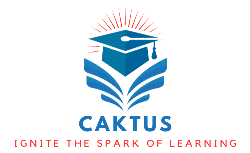
Continuing Education: A Pathway to Lifelong Learning and Career Advancement
In today’s rapidly evolving world, the pursuit of knowledge and skill development is no longer confined to the traditional educational system. Continuing education (CE) has emerged as a crucial component of personal and professional growth, enabling individuals to stay abreast of industry trends, enhance their employability, and cultivate a lifelong love of learning.
What is Continuing Education?
Continuing education encompasses a wide range of post-secondary learning opportunities that cater to individuals of all ages, backgrounds, and career aspirations. It goes beyond formal degree programs, offering a diverse array of non-credit courses, workshops, seminars, certifications, and online learning platforms.
Benefits of Continuing Education
The benefits of continuing education are multifaceted and extend far beyond the acquisition of new skills and knowledge. CE empowers individuals to:
-
Enhance their employability: By staying up-to-date with industry trends and acquiring new skills, individuals can increase their value in the job market, making them more competitive for promotions and new career opportunities.
-
Advance their careers: CE provides individuals with the tools and knowledge necessary to advance their current careers or transition into new fields altogether.
-
Expand their knowledge base: CE offers a wealth of opportunities to explore new interests, delve deeper into existing areas of expertise, and cultivate a lifelong love of learning.
-
Meet professional licensing requirements: Many professions mandate that individuals complete ongoing CE courses to maintain their licenses and certifications.
-
Personal enrichment: CE can foster personal growth and intellectual stimulation, providing individuals with the opportunity to explore new hobbies, develop creative pursuits, and expand their understanding of the world around them.
Types of Continuing Education Opportunities
The landscape of continuing education is vast and diverse, offering a variety of learning formats to suit individual preferences and schedules. Some of the most common types of CE opportunities include:
-
Non-credit courses: These courses provide valuable knowledge and skills without the pressure of traditional coursework or exams.
-
Workshops and seminars: These intensive short-term programs offer focused training on specific topics or skills.
-
Certifications: These credentials attest to an individual’s proficiency in a particular area of expertise.
-
Online learning: This flexible format allows individuals to access courses and materials from anywhere in the world, at their own pace.
Pursuing Continuing Education
With the abundance of CE opportunities available, individuals can easily find programs that align with their interests, career goals, and learning styles. Here are some steps to consider when pursuing CE:
-
Identify your goals: Clearly define your objectives for pursuing CE, whether it’s enhancing your employability, advancing your career, or exploring new interests.
-
Research your options: Explore the various CE providers, courses, and formats available to find those that best suit your needs and preferences.
-
Consider your budget: Set a realistic budget for your CE endeavors and factor in the costs of tuition, materials, and travel.
-
Manage your time: Develop a plan to balance your CE commitments with your work, personal, and family obligations.
-
Seek support: Don’t hesitate to seek guidance from academic advisors, career counselors, or professional organizations for assistance in navigating the CE landscape.
Conclusion
Continuing education stands as a testament to the power of lifelong learning, empowering individuals to continuously expand their knowledge, enhance their skills, and pursue their aspirations. By embracing CE opportunities, individuals can not only advance their careers but also cultivate personal fulfillment and intellectual growth.
